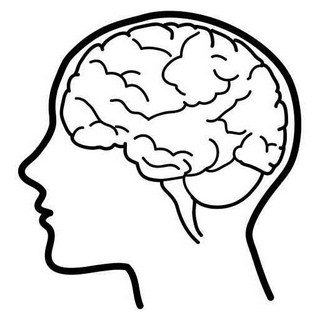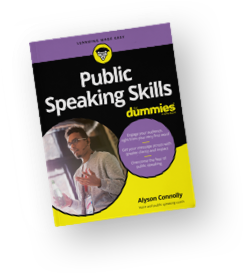When I went back to school to get my masters in theatre voice pedagogy (the fancy name for teaching voice), I thought I’d learn a few tips to help people find their voice. Teach them how to breath, how to project their voice, and how to articulate.
During my two years at university, I would coach students. I confided to one of my professors that I had a student who was reliving a difficult time from his past whenever he gave a presentation. While presenting in high school years before, he thought he did well. When he sat down the teacher exclaimed that he did ok but that the next presenter was sure to add more points and give a clearer presentation. Consequently, every time he presented or even thought about presenting, he would get into a cold sweat reliving that moment years ago. Was someone going to call him out on his mistakes or forgotten points? While presenting he was never in the moment of giving his speech but hurrying it along so that he could sit down and just forget about it!
My professor told me that teaching speech has just as much to do with the mind as it has with the body . What? Turns out she was right. And the vocal pedagogue gurus think so, too.
Kristin Linklater states in her book, Freeing the Natural Voice. “Blocked emotions are the fundamental obstacle of a free voice.”
My thesis for my masters was on alleviating performance anxiety in public presenters. I needed an external professor from the university to oversee it. I asked a psychologist and am so grateful for his insight and knowledge. He showed me that there really is a mind body connection when public speaking.
With my clients I work on how they can deal with and overcome what has happened in the past so they can speak with confidence and enjoy their presentation.
When you’re thinking about improving your public speaking, don’t just rely on voice tricks or breathing exercises, you have to really connect with what’s going on in your head.

